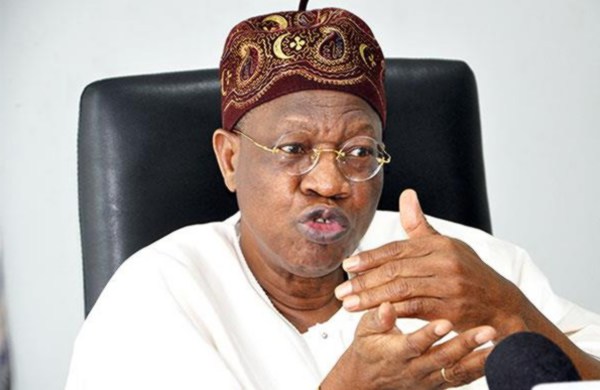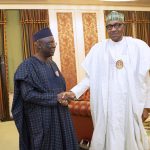… calls Obasanjo, others scaremongers
There is no cause for alarm over the country’s rising domestic and external debts, says Information and Culture Minister, Alhaji Lai Mohammed.
Raising his voice several days after former President Olusegun Obasanjo had alerted that “ Nigeria might become the poorest nation in the world soon’’ as a result of the mounting debts, Mohammed said there were misrepresentations in the figures being pushed out in certain quarters about the debt profile.
Persecondnews recalls that President Muhammadu Buhari’s request before the National Assembly, seeking approval for a loan of $29.9 billion which the National Assembly had promised to approve.
The Obasanjo administration (1999-2007), had secured debt pardons for Nigeria from the Paris and London Clubs amounting to some $18 billion and paid another $18 billion to be debt-free.
Obasanjo had claimed that Nigeria would need to commit half of its foreign earnings to servicing its current level of indebtedness.
Under him, the country’s Gross Domestic Product (GDP) growth doubled to 6 per cent while foreign reserves also increased from $2 billion in 1999 from long military interregnum to $43 billion in 2007 at the end of his second term.
But speaking to reporters in Lagos on Monday, the minister said the “country had not reached its debt ceiling of 25 per cent in total public debt stock to Gross Domestic Product (GDP)’’.
“Recently, there have been concerns in certain circles about the country’s growing debt, both domestic and external.
“In the process, there has been some misrepresentations and scaremongering.
“We, therefore, believe it is important to put things in perspective, so our citizens will be well informed,’’ Mohammed said.
He insisted that it was not correct to say that Nigeria’s external debt alone is 81.274 billion dollars.
He explained: “The public debt stock is actually a cumulative figure of borrowings by successive governments over many years.
“It is therefore, not appropriate to attribute the public debt stock to one administration.
“Nigeria’s total public debt stock in 2015 was 63.80 billion dollars comprising 10.31 billion dollars of external debt and 53.49 billion dollars domestic debt.
“By June 2019, the total debt stock was 83.883 billion dollars, made up of 27.163 billion dollars of external debt and 56.720 billion dollars domestic debt.’’
Mohammed believed that there was no cause for alarm because Nigeria had a debt ceiling of 25 per cent in the total public debt stock to Gross Domestic Product (Debt/GDP) which it had operated within.
He said the ratio for Dec. 31, 2018 and June 30, 2019 were 19.09 per cent and 18.99 per cent respectively.
The minister said that the debt service to revenue ratio had been higher than desirable, hence the push by the government to diversify the economy and increase oil and non-oil revenues significantly.
The government, he said, was also widening the tax base to capture more tax-paying citizens.
He stressed: “In the face of massive infrastructure decay, no responsible government will sit by and do nothing.
“This administration’s borrowing, therefore, is aimed at revamping our infrastructure, including roads, bridges, railways, waterways and power to help unleash the potential of the nation’s economy.
“The loans for the education sector will contribute to the development of our human capital, while the loans for the agricultural sector will help the move to diversify the economy.
























Leave a comment